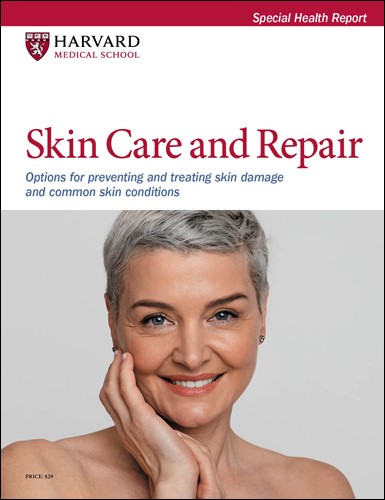Why do I burn even if I'm slathered in sunscreen?
Ask the doctors

Q. With summer in full swing, I diligently apply sunscreen every day. But I'm still getting sunburned! Why does that happen?
A. You're right to be concerned, since getting five or more sunburns in your lifetime doubles your risk of developing melanoma, the most dangerous form of skin cancer.
But sunscreen alone doesn't necessarily protect us from ultraviolet (UV) rays that can damage our skin, fueling DNA changes that promote aging and possible cancer growth. Other factors also make our skin more vulnerable to burns. These include
- using skin care products that slough off the skin's top layers, such as retinoids or glycolic acid
- taking antibiotics or diuretics ("water pills"), which allow the skin to burn more quickly and with less sun exposure
- applying old sunscreen, which can lose its potency if expired or exposed to extreme temperatures over time
- reading on a tablet or other screen while outdoors, which raises your UV exposure by reflecting the sun's glare on your face and neck.
While no sunscreen blocks all UV rays, make sure you use a broad-spectrum version labeled as SPF 30 or higher. Your odds of getting burned also drop if you stay out of the sun entirely at midday, from 10 a.m. to 3 p.m., when UV rays are strongest.
Image: © boophotography/Getty Images
About the Authors

Toni Golen, MD, Editor in Chief, Harvard Women's Health Watch; Editorial Advisory Board Member, Harvard Health Publishing; Contributor

Hope Ricciotti, MD, Editor at Large, Harvard Women's Health Watch
Disclaimer:
As a service to our readers, Harvard Health Publishing provides access to our library of archived content. Please note the date of last review or update on all articles.
No content on this site, regardless of date, should ever be used as a substitute for direct medical advice from your doctor or other qualified clinician.
















